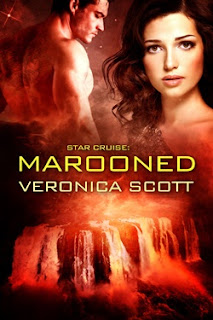Our theme for the week is favorite recipes to bring to a party. I have two for you. first a simple one and second a recipe that's a bit more complex.
So a friend of mine introduced me to one of the best ever party dips He and his beloved call it "crack Dip," because once you've had it, you'll be addicted.
They aren't really wrong.
Crack Dip is amazingly easy. 1 part cream cheese. 1 part your favorite salsa.
Allow cream cheese to reach room temperature, mix with sals. until thoroughly blended. Serve with your favorite chips, though I always had it with Fritos corn chips.
The other, slightly more complex offering is stuffed jalepenos
Stuffing: cream cheese, cheddar cheese, garlic powder, black pepper, Old Bay seafood seasoning and panko bread crumps with either a) real or fake crab meat or b) salad shrimp.
Mix all of the stuffing ingredients together. 1 part cream cheese, 1 part cheddar cheese, seasonings to taste and a half cup of panko bread crumbs to help stick everything together. Once again the cream cheese should be room temperature to make it easier to mix. Add in the seafood of your choice.
Let the mixture sit in the refrigerator while you take a good dozen or so jalepenos and cut them in half. Take the time to scrape out at least the majority of the white flesh and the seeds, as those hold all of the heat. Even with them removed, you'll get a lot of flavor and some peppery bite.
Once the peppers have been cleaned, wash your hands thoroughly with warm soap water, thus allowing you to uses your hands without risking rubbing your eye unconsciously and wishing that your eye would stop catching on fire.
Now that we have THAT out of the way, spoon the stuffing into the jalepenos and once agains et them in he refrigerator for around fifteen minutes to let them set up.
preheat the oven to 350 degrees, set the peppers on a nonstick surface and bake for 20 minutes. Serve when ready.
There. That's two for ya.
Keep smiling and have a great 4th of July.
So a friend of mine introduced me to one of the best ever party dips He and his beloved call it "crack Dip," because once you've had it, you'll be addicted.
They aren't really wrong.
Crack Dip is amazingly easy. 1 part cream cheese. 1 part your favorite salsa.
Allow cream cheese to reach room temperature, mix with sals. until thoroughly blended. Serve with your favorite chips, though I always had it with Fritos corn chips.
The other, slightly more complex offering is stuffed jalepenos
Stuffing: cream cheese, cheddar cheese, garlic powder, black pepper, Old Bay seafood seasoning and panko bread crumps with either a) real or fake crab meat or b) salad shrimp.
Mix all of the stuffing ingredients together. 1 part cream cheese, 1 part cheddar cheese, seasonings to taste and a half cup of panko bread crumbs to help stick everything together. Once again the cream cheese should be room temperature to make it easier to mix. Add in the seafood of your choice.
Let the mixture sit in the refrigerator while you take a good dozen or so jalepenos and cut them in half. Take the time to scrape out at least the majority of the white flesh and the seeds, as those hold all of the heat. Even with them removed, you'll get a lot of flavor and some peppery bite.
Once the peppers have been cleaned, wash your hands thoroughly with warm soap water, thus allowing you to uses your hands without risking rubbing your eye unconsciously and wishing that your eye would stop catching on fire.
Now that we have THAT out of the way, spoon the stuffing into the jalepenos and once agains et them in he refrigerator for around fifteen minutes to let them set up.
preheat the oven to 350 degrees, set the peppers on a nonstick surface and bake for 20 minutes. Serve when ready.
There. That's two for ya.
Keep smiling and have a great 4th of July.












